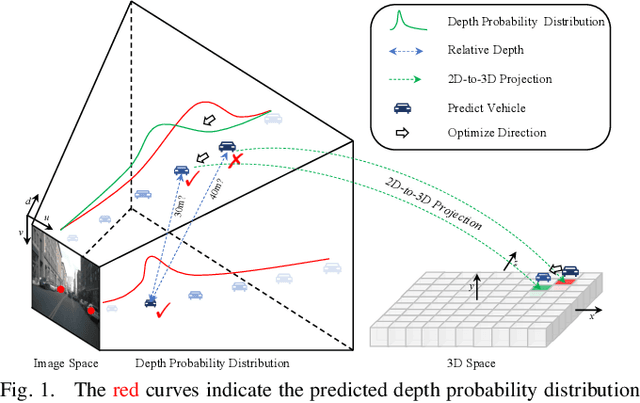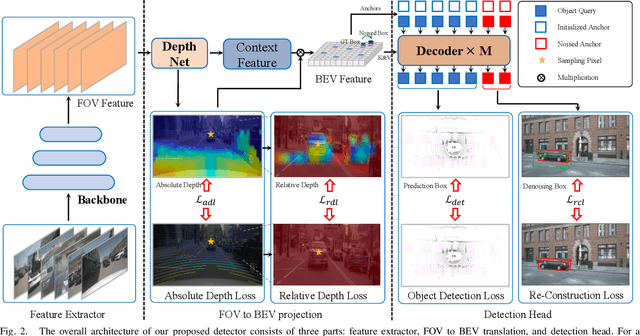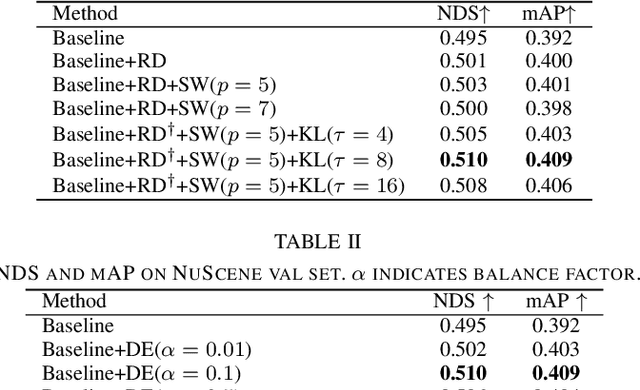Toward Accurate Camera-based 3D Object Detection via Cascade Depth Estimation and Calibration
Paper and Code
Feb 07, 2024



Recent camera-based 3D object detection is limited by the precision of transforming from image to 3D feature spaces, as well as the accuracy of object localization within the 3D space. This paper aims to address such a fundamental problem of camera-based 3D object detection: How to effectively learn depth information for accurate feature lifting and object localization. Different from previous methods which directly predict depth distributions by using a supervised estimation model, we propose a cascade framework consisting of two depth-aware learning paradigms. First, a depth estimation (DE) scheme leverages relative depth information to realize the effective feature lifting from 2D to 3D spaces. Furthermore, a depth calibration (DC) scheme introduces depth reconstruction to further adjust the 3D object localization perturbation along the depth axis. In practice, the DE is explicitly realized by using both the absolute and relative depth optimization loss to promote the precision of depth prediction, while the capability of DC is implicitly embedded into the detection Transformer through a depth denoising mechanism in the training phase. The entire model training is accomplished through an end-to-end manner. We propose a baseline detector and evaluate the effectiveness of our proposal with +2.2%/+2.7% NDS/mAP improvements on NuScenes benchmark, and gain a comparable performance with 55.9%/45.7% NDS/mAP. Furthermore, we conduct extensive experiments to demonstrate its generality based on various detectors with about +2% NDS improvements.
 Add to Chrome
Add to Chrome Add to Firefox
Add to Firefox Add to Edge
Add to Edge